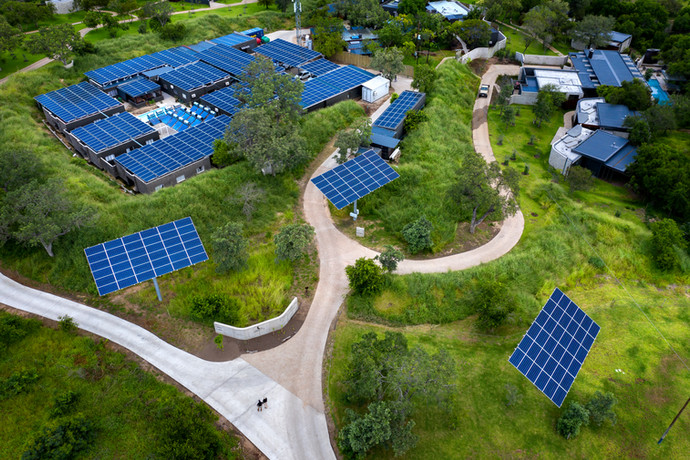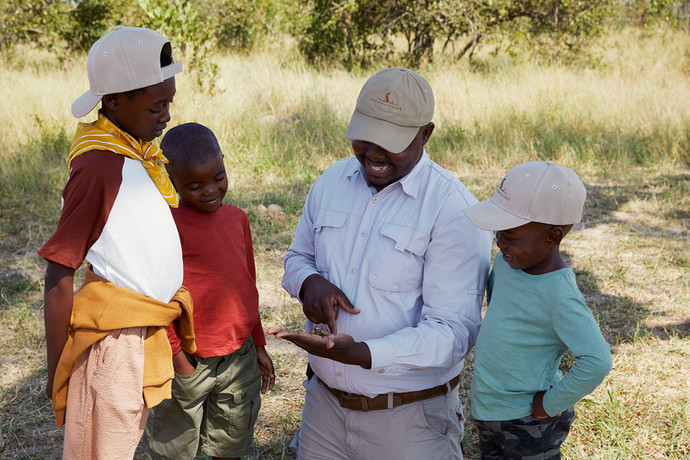Awarded Africa’s Leading Green Hotel by World Travel Awards in 2023
Sabi Sand, South Africa (February 15, 2024): Cheetah Plains, the ultimate safari experience in South Africa is pleased to announce the first carbon-negative safari lodge in the Sabi Sand Nature Reserve (SSNR). Recently awarded Africa’s Leading Green Hotel by World Travel Awards in 2023, Cheetah Plains envelops and embraces sustainability on every level from its unique and award-winning architecture to its all-electric fleet of solar-powered 4×4 vehicles for a 100% off-grid game-drive experience. Pioneering the silent safari and driving a singular approach to renewable energy in hospitality in the wild, Cheetah Plains is committed to delivering an exceptional eco-luxury safari experience of the highest standards, preserving the environment, and leaving a positive, enduring impact. The sustainability initiatives that drive this approach include nature and wildlife conservation, energy efficiency, water stewardship, waste reduction, empowerment, education, and purchasing practices.
“This accolade speaks to the fact that Cheetah Plains operates on a negative emissions basis and shows that sustainable luxury can be achieved through responsible tourism and initiative. We are very proud and humbled by this award and will continue to strive towards leading the way in this field of sustainability,” shares NJ van der Merwe, General Manager of Cheetah Plains.



The lodge’s focus is on efforts to reduce greenhouse gas emissions, while offsetting above and beyond its emission output to exceed carbon neutrality. Credited for its carbon-negative results is the lodge’s onsite production of alternative clean energy sources via solar power and best practices in sustainable operations and social impact. Breaking away from the safari industry’s reliance on diesel and electric power to operate, the Cheetah Plains ‘off the grid’ experience harnesses the power of solar to provide an efficient renewable energy source made possible by developing a solar plant that includes the installation of 1,205 solar PV panels on the rooftops, as well as three Dual-axis PV solar trackers which follow the sun for the optimal input. The total solar installation generates an average of 550MWh per annum which is an offset of approximately ZAR 1 million ($62,500 USD) of electricity from Eskom per annum or 530 Tonnes of CO2 emissions per annum. Introducing solar and electric vehicles reduces greenhouse gas emissions against a baseline scenario. Zero-emission game viewing drives the sustainable safari experience at Cheetah Plains. The twice-daily game drives that traverse over 20,200+ acres are taken in innovative Toyota Land Cruiser Electric Safari Vehicles powered by Tesla batteries that are recharged through solar energy.
“South Africa continues to face an ever-present energy crisis and we are focused on creating our own solutions. We’ve partnered with some of the world’s pre-eminent minds in the renewable energy field to provide clean energy solutions that drive both our hospitality and safari experiences here at Cheetah Plains,” shares Japie van Niekerk, owner of Cheetah Plains.
In an effort to conserve water and reduce plastic use, Cheetah Plains offers guests the option of refilled and sealed glass bottles of water in its villas through its trusted hydration solution partner Topia. The lodge uses filtrated natural borehole water, which goes through a reverse osmosis system that purifies the water with a tested pH level of 9.5. Biodegradable packaging and paper are used throughout to replace plastic use. The lodge’s purchasing practice strives to make intentional decisions supporting a sustainable and local value chain. Examples of this are amenity brand Africology that holds the same standard of practice and is known for its locally sourced and fully biodegradable natural products. Cheetah Plains is also part of a community waste reduction management initiative, where its waste is divided and collected bi-weekly by local community operatives that make a living in reusing, recycling, and up-cycling materials.